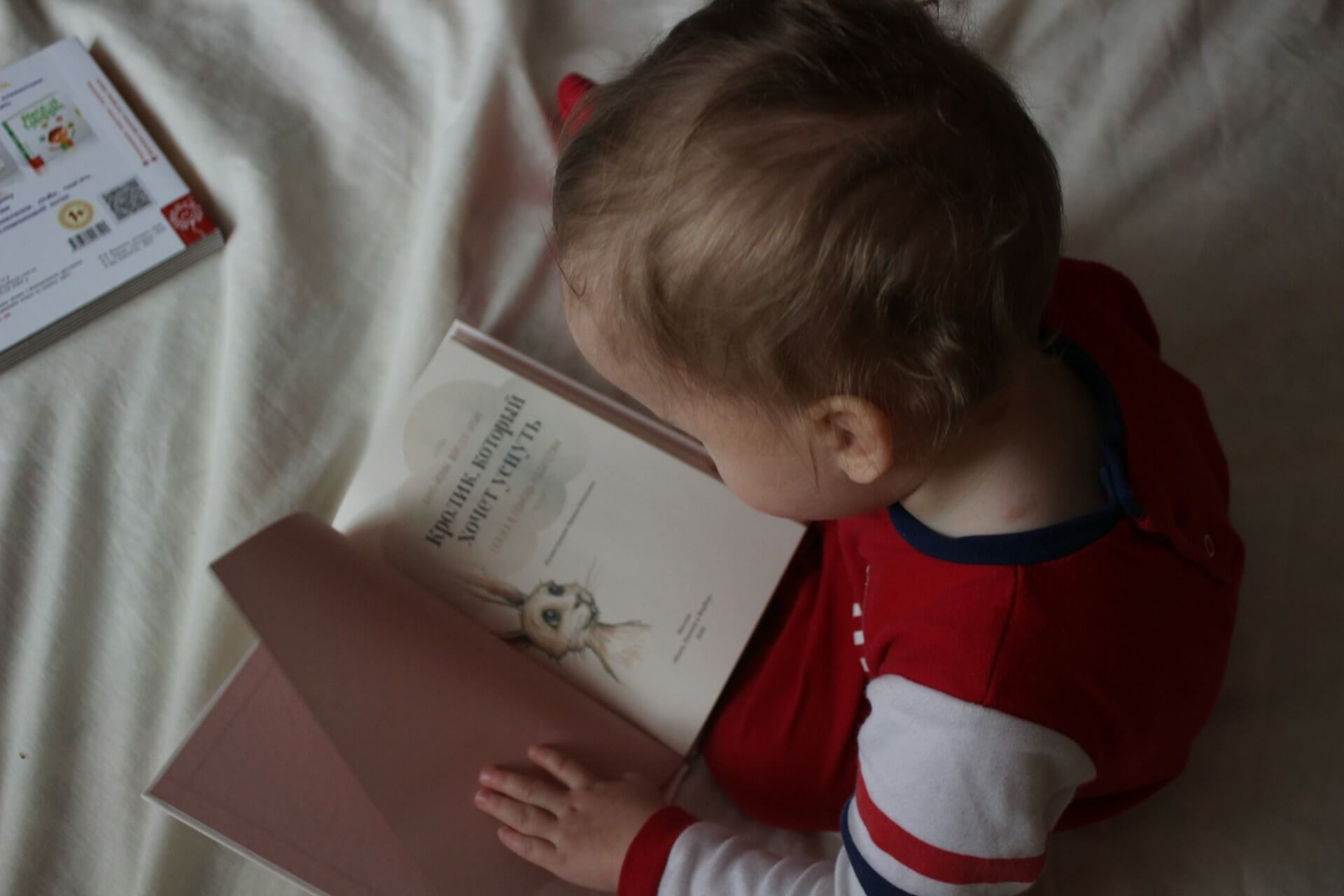
Although they can be difficult to learn, without knowing irregular verbs and their conjugations, you might have a hard time communicating, as many verbs you use on a daily basis are irregular when conjugated in Spanish.
Leer is a perfect example of that - one of the most common Spanish words, leer conjugates irregularly, so if you want to use it comfortably in sentences, there’s no other solution than to learn it by heart.
Don’t know where to begin? Well, our comprehensive leer conjugation guide is a great place to start. We cover every conjugation of leer you might need in one place to help you get the hang of it.
But, before that - what does leer even mean? The translation is pretty simple - it means “to read.” That’s it - contrary to many Spanish verbs, here there’s no second meaning.
So, now that we have that out of the way let’s move on to the star of this guide - the leer conjugations.Infinitive, Gerund, and Participle of Leer
The verb leer typically remains the same when used in infinitive, gerund, or participle - it’s the accompanying verb that gets changed to fit the sentence.
Infinitive | Leer (to read) | Me gustaría leer este libro. (I’d like to read this book.) |
Gerund | Leyendo (reading) | Anna está leyendo el libro de historia. (Anna is reading the history book.) |
Participle | Leído (read) | Ya había leído ese libro antes. (I had read that book before.) |
Indicative Tenses of Leer with Examples
The indicative tenses are used when discussing a fact or a characteristic of a person or a situation.
Leer Indicative in Simple Tenses
Here is a leer conjugation chart in the indicative mood in simple tenses:
Pronoun | Present (read) | Preterite (read) | Imperfect (used to read) | Future (will read) | Conditional (would read) |
yo | leo | leí | leía | leeré | leería |
tú | lees | leíste | leías | leerás | leerías |
él/ella/usted | lee | leyó | leía | leerá | leería |
nosotros/nosotras | leemos | leímos | leíamos | leeremos | leeríamos |
vosotros/vosotras | leéis | leísteis | leíais | leeréis | leeríais |
ellos/ellas/ustedes | leen | leyeron | leían | leerán | leerían |
Leer Indicative Present Conjugation
Present Indicative tense is used when you want to talk about something that happens frequently (routines and habits), things that are constant (characteristics), or actions that are happening at the given moment or about to happen soon.
PRONOUN | SPANISH | ENGLISH |
yo | leo | I read |
tú | lees | You read |
él/ella/usted | lee | He / She reads, You read (formal) |
nosotros/nosotras | leemos | We read |
vosotros/vosotras | leéis | You read (plural) |
ellos/ellas/ustedes | leen | They read / You read (plural formal) |
Examples:
- Normalmente leo las noticias en el periódico. - Normally, I read the news in the newspaper.
- De media, ella lee de diez a quince libros al año. - On average, she reads between ten to fifteen books a year.
- Ellos típicamente leen libros de fantasía. - They typically read fantasy books.
Leer Preterite Conjugation
The Preterite tense is used when talking about an action that was executed and completed in the past.
PRONOUN | SPANISH | ENGLISH |
yo | leí | I read |
tú | leíste | You read |
él/ella/usted | leyó | He / She read, You read (formal) |
nosotros/nosotras | leímos | We read |
vosotros/vosotras | leísteis | You read (plural) |
ellos/ellas/ustedes | leyeron | They read / You read (plural formal) |
Examples:
- Yo leí un libro ayer. - I read a book yesterday.
- ¿Dónde leíste eso? No recuerdo que estuviera en nuestro manual. - Where did you read that? I don’t remember it being in our handbook.
- ¿Cuál fue el último libro que leísteis? - What was the last book you read?
Leer Imperfect Conjugation
The Imperfect tense is used when talking about actions that were part of a routine in the past but are no longer.
PRONOUN | SPANISH | ENGLISH |
yo | leía | I used to read |
tú | leías | You used to read |
él/ella/usted | leía | He / She used to read, You used to read (formal) |
nosotros/nosotras | leíamos | We used to read |
vosotros/vosotras | leíais | You used to read (plural) |
ellos/ellas/ustedes | leían | They used to read / You used to read (plural formal) |
Examples:
- Antes leía más libros, pero ahora no tengo tiempo para ello. - I used to read more books, but now I don’t have time for it.
- Cuando era pequeña, sólo leía libros infantiles. Ahora sólo lee novelas románticas. - When she was little, she used to only read children’s stories. Now she only reads romance books.

Leer Future Conjugation
The Future tense is used when you want to talk about a future action, an intention or a probability.
PRONOUN | SPANISH | ENGLISH |
yo | leeré | I will read |
tú | leerás | You will read |
él/ella/usted | leerá | He / She will read, You will read (formal) |
nosotros/nosotras | leeremos | We will read |
vosotros/vosotras | leeréis | You will read (plural) |
ellos/ellas/ustedes | leerán | They will read / You will read (plural formal) |
Examples:
- Me prometí que durante mis vacaciones leeré el libro que mi mejor amiga me regaló. - I promised myself that during my vacation I will read the book that my best friend gave me.
- Ellos leerán Macbeth el próximo año. - They will read Macbeth next year.
Leer Conditional Conjugation
You would use the Conditional tense when expressing hypothetical or unreal situations.
PRONOUN | SPANISH | ENGLISH |
yo | leería | I would read |
tú | leerías | You would read |
él/ella/usted | leería | He / She would read, You would read (formal) |
nosotros/nosotras | leeríamos | We would read |
vosotros/vosotras | leeríais | You would read (plural) |
ellos/ellas/ustedes | leerían | They would read / You would read (plural formal) |
Examples:
- Leería el libro que me recomendaste si tuviera tiempo. - I would read the book you recommended if I had the time.
- Le leería a sus hijos todas las noches si pudiera. - She would read to her children every night if she could.
Leer Indicative in Compound Tenses
Simple tenses are just the beginning. Once you get the hang of them, it’s time to move to Compound tenses. Those are more complex due to the fact that they are built from two words - leer and haber (to have). However, they are surprisingly easier to remember, as leer remains the same, it’s haber that changes.
The good news is that once you learn haber conjugations by heart, it will be easier for you to understand other irregular verbs, as this auxiliary verb is used with other verbs as well.
So, here is a leer conjugation chart with Compound tenses:
Pronoun | Present Perfect (have read) | Past Perfect (had read) | Future Perfect (will have read) | Conditional Perfect (would have read) |
yo | he leído | había leído | habré leído | habría leído |
tú | has leído | habías leído | habrás leído | habrías leído |
él/ella/usted | ha leído | había leído | habrá leído | habría leído |
nosotros/nosotras | hemos leído | habíamos leído | habremos leído | habríamos leído |
vosotros/vosotras | habéis leído | habíais leído | habréis leído | habríais leído |
ellos/ellas/ustedes | han leído | habían leído | habrán leído | habrían leído |
Examples:
- He leído ese libro al menos tres veces. - I have read this book at least three times. (Present Perfect)
- Había leído el libro antes de que saliera la película para compararlos. - I had read the book before the movie came out to compare them. (Past Perfect)
- Habré leído toda la serie a finales de mes. - I would have read the entire series by the end of the month. (Future Perfect)
- Si hubieran estudiado más, habrían leído todos los capítulos necesarios para el examen. - If they had studied harder, they would have read all the required chapters for the exam. (Conditional Perfect)
Subjunctive Tenses of Leer with Examples
While Indicative mood is used to talk about facts, Subjunctive mood is the complete opposite. It is used to talk about uncertainties, wishes, hopes, doubts, and more.
Leer Subjunctive Conjugation in Simple Tenses
Pronoun | Present | Imperfect | Future |
yo | lea | leyera | leyere |
tú | leas | leyeras | leyeres |
él/ella/usted | lea | leyera | leyere |
nosotros/nosotras | leamos | leyéramos | leyéremos |
vosotros/vosotras | leáis | leyerais | leyereis |
ellos/ellas/ustedes | lean | leyeran | leyeren |
Leer Subjunctive Present Conjugation
This tense is used to express wishes, doubts, purposes, etc., that are associated with the present or the future.
PRONOUN | SPANISH | ENGLISH |
yo | lea | I read |
tú | leas | You read |
él/ella/usted | lea | He / She reads, You read (formal) |
nosotros/nosotras | leamos | We read |
vosotros/vosotras | leáis | You read (plural) |
ellos/ellas/ustedes | lean | They read / You read (plural formal) |
Examples:
- Espero que lea el libro que le regalé. - I hope she reads the book I gave her.
- Es importante que lean atentamente las instrucciones para que puedan hacer el ejercicio correctamente. - It’s important that they read the instructions carefully so that they can do the exercise correctly.

Leer Subjunctive Imperfect Conjugation
This tense is, similarly to the Subjunctive Present tense, used to express doubts, wishes, etc. - however, in relation to something that happened in the past.
PRONOUN | SPANISH | ENGLISH |
yo | leyera | I read |
tú | leyeras | You read |
él/ella/usted | leyera | He / She read, You read (formal) |
nosotros/nosotras | leyéramos | We read |
vosotros/vosotras | leyerais | You read (plural) |
ellos/ellas/ustedes | leyeran | They read / You read (plural formal) |
Examples:
- Me sorprendió que no leyera más teniendo en cuenta su velocidad de lectura. - I was surprised he didn’t read more considering his reading speed.
- Dudaba que leyeran el periódico. - I doubted that they read the newspaper.
Leer Subjunctive Future Conjugation
This tense is used when talking about hypothetical situations and actions or events that could happen in the future.
It’s important to notice that this tense is actually rarely used in modern Spanish - you’re most likely to encounter it in literature or legal documents.
PRONOUN | SPANISH | ENGLISH |
yo | leyere | I will read |
tú | leyeres | You will read |
él/ella/usted | leyere | He / She will read, You will read (formal) |
nosotros/nosotras | leyéremos | We will read |
vosotros/vosotras | leyereis | You will read (plural) |
ellos/ellas/ustedes | leyeren | They will read / You will read (plural formal) |
Subjunctive Tenses in Compound Tenses
Similarly to Indicative Compound tenses, Subjunctive Compound tenses are made from two elements - haber and leer. And just like before, leer remains the same, while haber changes depending on the sentence.
Let us point out beforehand, however, that just like the Future Subjunctive tense, the Future Perfect Subjunctive is rarely used in casual conversation and is most likely to be used in legal documents or literature.
Here is a leer conjugation chart with Compound tenses:
Pronoun | Present Perfect | Past Perfect | Future Perfect |
yo | haya leído | hubiera leído | hubiere leído |
tú | hayas leído | hubieras leído | hubieres leído |
él/ella/usted | haya leído | hubiera leído | hubiere leído |
nosotros/nosotras | hayamos leído | hubiéramos leído | hubiéremos leído |
vosotros/vosotras | hayáis leído | hubierais leído | hubiereis leído |
ellos/ellas/ustedes | hayan leído | hubieran leído | hubieren leído |
Examples:
- No creo que haya leído el libro, si lo hubiera hecho sabría la respuesta. - I don’t think she has read the book, she would’ve known the answer if she did. (Present Perfect)
- Dudo que hayan leído las noticias. - I doubt they have read the news. (Present Perfect)
- Me habría gustado que hubieras leído el libro antes de ver la película. - I wish you had read the book before seeing the movie. (Past Perfect)

Imperative Conjunctions of Leer
Imperative is the final of the three Spanish moods, and it is used to give commands. There are both affirmative and negative conjurations, and usually, you will encounter Imperative mood used with one of the three pronouns:
Pronoun | Affirmative | Negative |
tú | lee | no leas |
nosotros | leamos | no leamos |
ustedes | lean | no lean |
Spanish Made Easy with Speaking Latino
Spanish can be difficult, but it doesn’t have to be. At Speaking Latino, it is our mission to make learning and teaching this beautiful language as easy as possible, and the countless resources we offer definitely help with that.
Don’t hesitate to take a look at our website and find the teaching aids to help yourself or your students associate Spanish with fun learning rather than a chore.